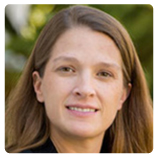Research on Human Health, Food Safety, Diets & Nutrition
The materials from this online event are useful for researchers who are interested in working with us. We hope that this new Area of Inquiry brings more partners from the fields of Human Health, Food Safety, Diets & Nutrition.
- Webinar of April 9, 2021
- Watch the video from University of Florida:https://mediasite.video.ufl.edu/Mediasite/Play/b9218bfcf8d247dda376224ba8fe859a1d
About the Presentation
The three main parts of this presentation are:
- Phase I – Highlights of Human Health and Nutrition Research
- Phase II – Priority research areas for the Human Health, Food Safety, Diets & Nutrition Area of Inquiry
- Request for applications for Phase II research – Process and eligibility
Presenters
The two main presenters are co-leaders of the Area of Inquiry: Human Health, Food Safety, Diets & Nutrition

Arie Hendrik Havelaar contributes to the Feed the Future Innovation Lab for Livestock Systems as co-lead of the Human Health, Food Safety, Diets & Nutrition Area of Inquiry. Dr. Havelaar is a Preeminent Professor of Global Food Safety and Zoonoses in the Animal Sciences Department, the Institute for Sustainable Food Systems and the Emerging Pathogens Institute of the University of Florida, Gainesville, FL, USA. Before moving to the United Sates in 2014, Dr. Havelaar worked at the Dutch National Institute for Public Health and the Environment, Bilthoven, the Netherlands in various scientific and management roles, most recently as Principal Scientist in the Center for Zoonoses and Environmental Microbiology. He is an emeritus professor of Microbial Risk Assessment at the Institute for Risk Assessment Sciences of the Faculty of Veterinary Medicine, Utrecht University, the Netherlands.
Dr. Havelaar holds an MSc degree in Chemical Engineering with a major in Microbiology from the Delft University of Technology, a PhD in Microbiology from Utrecht University and an MSc in Epidemiology from the Netherlands Institute for Health Sciences at the Erasmus University, all in the Netherlands.
His research focuses on epidemiology and risk assessment of foodborne and zoonotic diseases and their prevention. He has published extensively on the global burden of foodborne disease, including in his role as chair of the WHO Foodborne Disease Burden Epidemiology Reference Group. He contributes to the Feed the Future Innovation Lab for Livestock Systems, leads the “Campylobacter Genetics and Environmental enteric Dysfunction (CAGED)” project and participates in several other projects focusing on food safety in low- and middle-income countries. His current research is funded by the Bill & Melinda Gates Foundation, the UK Department for International Development and the Florida Department of Health.

Sarah McKune is principal investigator the the "Un Oeuf" projects, and one of the co-principal investigators of the CAGED study. Dr. McKune is an Assistant Professor in the Department of Environmental and Global Health and the Center for African Studies at the University of Florida. For the past 15 years she has worked with global health development programs, largely in the West African Sahel, but also in Nepal, Haiti, Uganda, and Ethiopia. She holds a B.A. in French and Sociology, a Master’s in Public Health, a Ph.D. in Interdisciplinary Ecology, and was a Post-Doctoral Fellow for the CGIAR’s research program on Climate Change, Agriculture, and Food Security (CCAFS). She served as the Director of Public Health Programs for the College of Public Health and Health Professions from 2013-2016 before joining the department of Environmental and Global Health. Dr. McKune’s research seeks to explain the complex, household dynamics that affect child growth and nutritional outcomes, including behavior, women’s empowerment and gender dynamics, climate change, hygiene and sanitation, and livestock ownership.
Feed the Future Innovation Lab for Livestock Systems is part of Feed the Future




